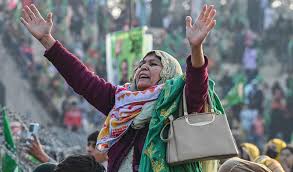OUR CORRESPONDENT
ISLAMABAD: Health activists have highlighted the critical need for raising tobacco taxes, specifically focusing on cigarettes. In a press release by the Society for the Protection of the Rights of Child (SPARC), the activists underscored that such measures are indispensable for generating significant revenue streams crucial for funding essential public services, including healthcare, and bolstering the economy.

Malik Imran Ahmed, the Country Head of the Campaign for Tobacco-Free Kids (CTFK), emphasized the pivotal role of heightened cigarette taxes in deterring smoking, particularly among the youth and individuals with lower incomes. By instituting annual increments in cigarette taxes, policymakers can effectively curtail tobacco consumption by rendering cigarettes less affordable over time. This strategic approach holds the promise of substantially ameliorating public health outcomes by mitigating smoking-related diseases and reducing healthcare expenditures.
Malik Imran also shed light on the staggering economic toll of smoking in Pakistan, which amounts to Rs 615.07 billion (US$3.85 billion), equivalent to 1.6% of the country’s GDP. Notably, the economic costs of smoking far surpass the revenues generated by the tobacco industry, exacerbating this gap annually. He further referenced data from an international survey revealing that the aggregate annual economic costs attributable to smoking-related diseases and deaths, along with those associated with the three primary non-communicable diseases, collectively amount to 1.6% and 1.15% of Pakistan’s GDP, respectively. This alarming trend underscores the urgent imperative for escalating cigarette taxes annually to alleviate the strain on Pakistan’s GDP, necessitating prompt governmental action.
Dr. Khalil Ahmad, Program Manager at SPARC, elaborated on the multifaceted implications of escalating cigarette taxes. Highlighting the profound impact of tobacco-related health issues on children and marginalized communities, Dr. Khalil emphasized the urgent need for proactive measures to mitigate these challenges. He stressed that by augmenting cigarette taxes, the government can effectively curb smoking rates among youth, thereby safeguarding their health and well-being. Furthermore, Dr. Khalil highlighted that the financial burden imposed by tobacco-related illnesses disproportionately affects marginalized communities, exacerbating existing disparities in access to healthcare and socioeconomic opportunities.
Dr. Khalil reiterated that the incremental taxation of cigarettes is not merely a fiscal policy but a moral imperative. By making cigarettes less affordable for young individuals with limited disposable incomes, policymakers can disrupt the cycle of addiction and prevent the onset of smoking-related diseases. He emphasized that the revenue generated from increased cigarette taxes can be allocated towards bolstering healthcare infrastructure, funding public health initiatives, and implementing comprehensive tobacco control programs aimed at preventing tobacco use initiation and supporting smoking cessation efforts.
















